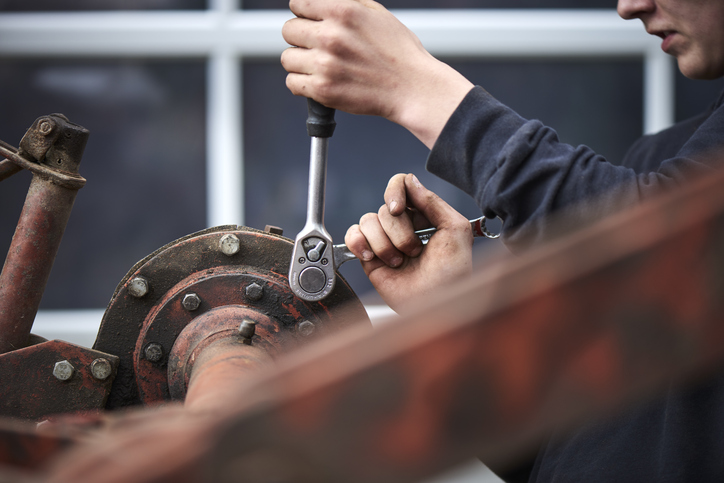All About Regular Preventive Maintenance for Working Tractors
The success of your farm demands plenty of tractor time. Therefore, it is critical to keep this expensive piece of machinery well-maintained and ready to go.
Why Tractor Maintenance is Important
Your tractor may be the most important piece of machinery you own. It is essential to everything that makes your farm successful. Neglecting to keep it in proper running order could lead to huge losses in productivity. This may also put the life of the driver at risk—in the field or on the road.
Prevention is the best care you can provide for your tractor. This means planned downtime that can save you possible financial woes and even legal consequences if something goes wrong.
Tracking Your Tractor Maintenance
How to keep track of all the upkeep and still have time to drive?
Mobile Apps
Thanks to today’s technology, you can keep up with your maintenance needs with apps like Tractorpal or similar tools made to not only track dates and details of your tractor maintenance, but also keep inventory records of all your agriculture equipment and attachments. These apps can also notify you when check-ups are due on each piece of equipment.
Physical Records
As handy as these tools can be, you may want to keep a physical copy of your maintenance records using pen and paper. A third option is to use both: write down a physical record of your equipment maintenance and save these details on an app for easy access while you’re on the go.
Whatever method you choose, talk with a trusted, professional technician or dealer when creating any maintenance schedule. This can help ensure that your tractor and other equipment can remain in tip-top condition longer.
List of Tractor Maintenance Tips
We include below a brief rundown of maintenance tips (sourced from Farm Bureau Financial Services and Hobby Farms) that can save you time and money by keeping your tractor—and your peace of mind—in good shape.
- Tractors are meant to do the (very) dirty work. But all that plowing, tilling, and soil-turning can make a mess. Mud and debris can clog your tractor’s moving parts. Be sure to clean tires, air filters, and surfaces regularly to maintain efficiency. If caught in salt and snow, make sure to hose off your tractor, as it can be prone to rust.
- Regular inspections should always be on your maintenance list, so always keep an eye out for parts that are beginning to show signs of wear (such as tires, lights, belts, etc.). Lubricate internal parts regularly to help reduce friction. Schedule regular check-ups with your dealer to ensure the most complex machinery is in good shape.
- Like us, tractors need to “breathe” clean, fresh air. Even when parked in a shed, the dust and dirt in the air strains the engine, and dirty air filters can cause great damage. Check it every 50 hours of operation for cleaning or replacements.
- Regularly check and, if needed, clean battery terminals of any corrosion and greenish residue. This residue can reduce or even block the electrical flow from the alternator or to the starter.
- Clean and change oil filters once a year.
- Change the oil at the beginning of each season, or at stated intervals, no matter how many hours of operation your tractor has seen. Contaminants may seep in and break the oil down if left sitting for months.
Additional Resources
Grit Magazine offers a comprehensive maintenance schedule. This schedule provides measures to take from every 50 hours of operation all the way up to 1,000 hours, or annually.
On the other end of the spectrum, Hobby Farms offers an 11-point “daily walk-around” inspection to check your tractor out before you even start it each day.
Protect Your Farm Equipment with Farm Bureau Insurance
With Farm Bureau Insurance’s “Ag Promise” comprehensive farm insurance, farmers have the ability to insure their farm equipment along with their farm property and liability exposures. Learn more and get a free quote for insuring your equipment by contacting a local Farm Bureau Insurance agent near you. Start by using our Agent Finder.

